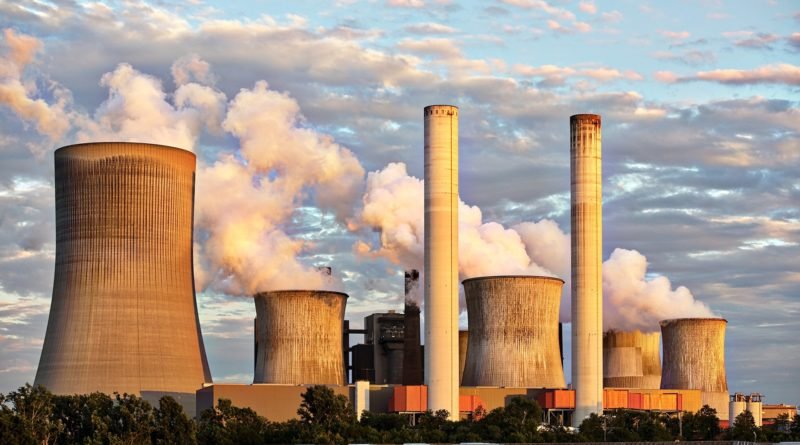Can Working in the Energy Industry Be Dangerous?
It is impossible to imagine contemporary life without the many organizations making up the energy sector, which is a vital component of modern civilization. While some people may take this for granted, many fail to realize that being employed in the energy business is also quite risky. This article will explore the potential dangers of working in the energy industry.
Potential Dangers of Working in the Energy Industry
Physical Hazards
Working in the energy industry often involves the use of heavy machinery, high-voltage equipment, and chemicals, which can pose significant threats. Workers may be exposed to hazards such as electrical shock, burns, chemical poisoning, and other work-related dangers, all of which can result in serious injuries or even death. Consider the Consolidated Edison power plants, for example, where employees were unaware of and unprotected from asbestos-related dangers in the workplace. This resulted in many asbestos-related illnesses throughout the company.
Environmental Hazards
The energy industry can also risk the environment, particularly if proper safety measures are not implemented. For instance, oil spills, gas leaks, and other environmental disasters can severely affect workers, the environment, and local communities.
Confined Spaces
Many workers in the energy industry work in confined spaces, such as tanks and pipelines, which can pose a risk of suffocation, asphyxiation, or other hazards.
High Pressure
Being employed in the energy sector often involves working with high-pressure equipment, such as pumps, boilers, and pipelines. If not appropriately maintained, high-pressure equipment can malfunction and result in explosions, which can lead to serious injury or death.
Fatigue
Workers in the energy industry may be required to work long hours, night shifts, and weekends, which can lead to fatigue. Fatigue significantly increases the risk of workplace accidents, as tired workers may be less alert and more prone to making mistakes.
Transportation
The transportation of energy resources such as oil and gas can be hazardous. Workers involved in transportation open themselves up to hazards such as collisions, fires, and explosions. In addition, workers involved in transportation may also be at risk of repetitive stress injuries and musculoskeletal disorders.
Weather
At times, energy workers are required to work in extreme weather conditions, such as heatwaves, cold snaps, and storms. Exposure to extreme weather conditions can pose a risk of heat stroke, frostbite, and other weather-related illnesses.
Benefits of Working in the Energy Industry
While it is true that working in the energy industry can come with potential dangers, there are also numerous benefits to working in this field.
High Pay
Due to the importance of the energy industry and the specialized skills required for many positions, workers in this field can earn high salaries. According to the Bureau of Labor Statistics, the median annual wage for oil and gas extraction workers was $52,410 in 2020, significantly higher than the median annual wage for all occupations.
Technological Advancements
The energy industry constantly evolves, with new technologies and innovations being developed to improve efficiency, safety, and sustainability. This means that workers in the industry can work with cutting-edge technology and be part of exciting new developments in the field.
Global Opportunities
The energy sector is far-reaching, with countless companies operating in different countries around the globe. This means that workers in the industry can work and travel internationally, which can be a valuable personal and professional experience.
Factors to Consider Before Working in the Energy Industry
Work Schedule
Many jobs in the energy industry require employees to work long hours, sometimes in remote locations or offshore oil rigs. It is important to consider the work schedule and its potential impact on your personal life and family commitments before deciding to pursue a career in this field.
Training and Education
Many jobs in the energy industry require specialized training and education, such as a degree in engineering or certification in specific safety protocols. It is important to carefully assess the educational and training requirements for the specific job or position before deciding to pursue it.
Ethical Considerations
The energy industry has faced criticism for its environmental impact and concerns over social responsibility. It is important to consider the ethical implications of working in the energy sector and to carefully assess the company’s commitment to sustainability, social responsibility, and ethical practices.
Conclusion
Clearly it is apparent that working in the energy industry can be dangerous due to physical and environmental hazards. To mitigate the risk of workplace accidents and injuries, energy companies need to prioritize safety and implement appropriate safety measures. By investing in safety training, equipment maintenance, and hazard identification, energy companies can ensure their workers’ safety and well-being while protecting the environment and local communities as well. Ultimately, prioritizing safety in the energy industry is crucial for the industry’s success and sustainability.




